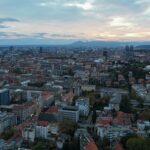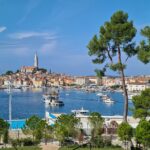Prime Minister Andrej Plenković told the press the GSV was presented with a summary of the draft plan, on which all departments had been working on for eight months now.
“It’s a document containing reforms and investments amounting to €6.3 billion which is part of the Next Generation EU programme. Croatia is one of the member states that received more than the others.”
He said the money involved was important so that Croatia can recover after the economic crisis caused by the pandemic and become stronger and faster in achieving the economic growth it had before the COVID crisis.
Plenković said the GSV was presented with the outlines of the national recovery and resilience plan, and that the government would endorse the information on it on Thursday and then present the plan to the press.
The intention is to finish the plan by the end of April, after which it needs to be approved by the European Commission.
“That will be followed by the payment of an advance of 13%,” Plenković said, adding that “we should receive HRK 6.1 billion in August or September, to be followed by the realisation of projects through reforms.”
He said some of the criteria for obtaining the funds were that 37% of all applications must contribute to the green transition and 20% to the economy’s digital transition.
The criteria also include not causing significant damage in terms of climate change, greenhouse gas emissions, water protection, and the circular economy.
“In the next ten years Croatia will have €6.3 billion in grants at its disposal, then almost €13 billion in the new multiannual financial framework, another €3.6 billion in Next Generation EU loans, most probably about €1 billion for earthquake recovery, plus almost €1 billion from ReactEU and the Just Transition Fund,” Plenković said.
Employers and unions say the document is encouraging
Unionist Vilim Ribić said Plenković’s arrival at the GSV meeting constituted a good approach to social dialogue.
“A truly spectacular amount of money is expected,” he said, adding that unions were pleased “that education has received a very relevant percentage of the funds, about 15%.”
Ribić said the unionists had underlined the link between those funds and Croatia’s prospects in terms of emigration and economic transformation, adding that the unions had insisted on the social aspect and on reducing inequalities in society.
Croatian Employers’ Association (HUP) president Mihael Furjan said the national recovery and resilience plan summary looked encouraging and that its presentation marked the beginning of formal consultations with social partners.
“HUP is looking forward to a public consultation. We’ll try, with our experience, knowledge, expertise, to help the government so that the final version of the document looks as well as possible in the interest of the Croatian economy,” he said, adding that it was very important that employers and unions agreed throughout most of the discussion.
For more about politics in Croatia, follow TCN’s dedicated page.











